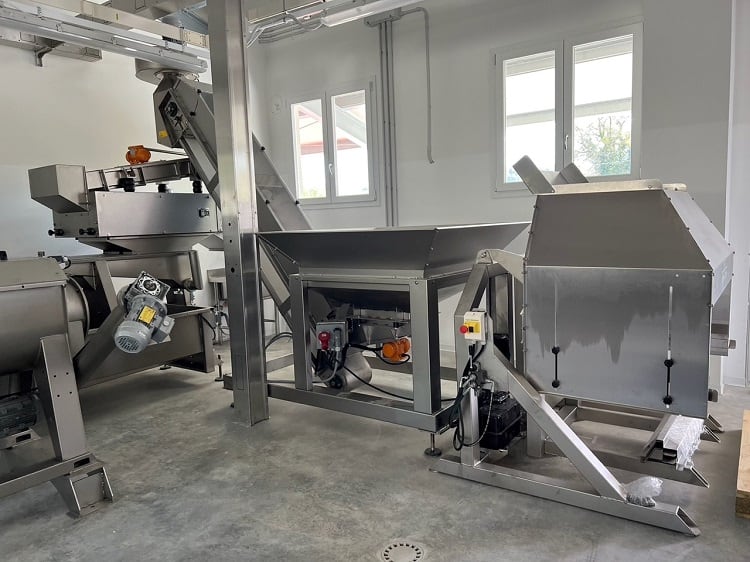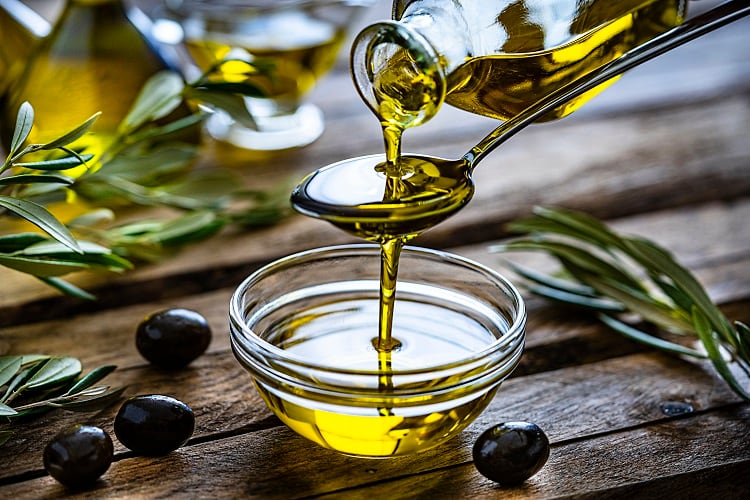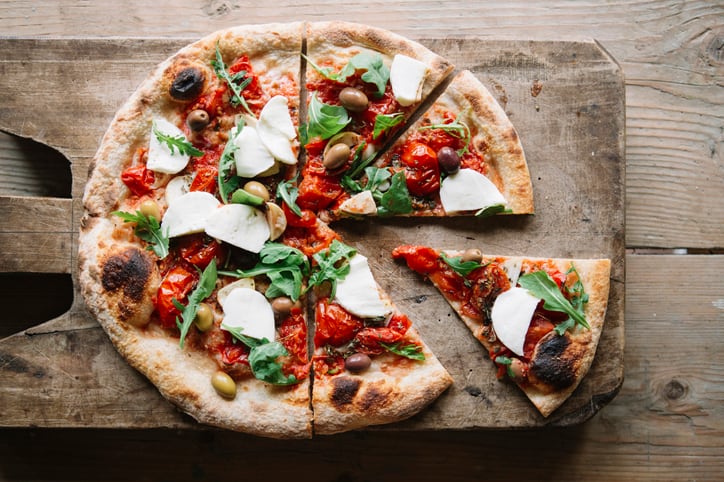The oil is selling under the ‘Greenwood Oil’ label on Radiohead’s W.A.S.T.E online shop. It even has a label designed by the artist Stanley Donwood, who is behind the artwork for every Radiohead album cover since their second album, The Bends, in 1995.
So why olive oil? “We inherited a couple of hundred trees when we first moved here,” Greenwood told FoodNavigator, “and found the process of harvesting and pressing so addictive that we decided to spend the following years acquiring and planting new groves, and slowly learning about the process of planting, conditioning soil, dealing with irrigation, using organic methods to treat pests and feed the trees, coping with extreme weather….it’s a whole universe in itself.”
Slow down
Growing olives and cultivating olive oil takes a long time. Greenwood has been making olive oil for eight years. “It has taken time to acquire the land and grow the trees. Olives are not fast food!
“The hope is to grow at the right speed, with the demand for our oil as well as transitioning the land into organic status. This is a long and slow road, fine oil is a paced product, but to make something that is diverse from music but still having a form of creativity is both rewarding and exciting - when it works out.”

In the end, though, it was worth it. “After the first harvest we were hooked: you realise the quality and taste is quite different in olives gown with small, non-industrial production methods, when compared to the larger supermarkets brands.”
The power of the olive
Olive oil production, said Greenwood, brings a rich array of possibilities, with many different olives to choose from. “There are nearly 2,000 varieties of olive, and some are exclusive to this area - so we were keen to use these.
“We source these trees from local suppliers, and we have started an experimental area of three hectares of olives grown intensively (like a vineyard) - but again, we are using local tree varieties, and not the common Spanish and Greek types commonly used for this form of production.
“We are aware of the difficulties of not conforming to the standard tree types but expect good results with the help of various regional experts from a multitude of agricultural disciplines.”
It's in the blending process that the olives get their flavour, however. “Careful blending is our main objective,” Greenwood told us, “to give a special flavour: there’s huge variety in flavours when you compare the different types of olive (as well as other variables like when you chose to harvest, how you harvest, how you press etc.)
“At present this is a bit limited as the bulk of the plants are still too young to produce, but the future holds expectations of some truly great oils.”
An olive shaped pool
Greenwood and his wife, Sharona Katan, have been working with several presses to get their olive oil made. “At present we have been using the press at the world acclaimed oil producer Agnostini at Petritoli,” he told us, “but from this year we shall be using our own press supplied by Mori Tem which we have found to produce fantastic oils by their modern system of pressing. This will enable us to control many factors during the process and provide consistency of product.
“Sharona has attended various courses in Europe and beginning to understand things like blending - and indeed most of the process - far more than me.”

However, the production process doesn’t always go without a hitch. “The biggest problem at the moment for us (and for all the other local farmers) is finding temporary manpower for the harvest.
“This is mainly because of restrictive Italian laws which leave many people unemployed while the farm produce goes unharvested. It’s a big bureaucratic headache and has forced us to use some intensive planting alongside the traditional, simply because there is no-one available for temporary work in this part of Italy.”
Brush the olives out of the sky
Greenwood is a very active musician. Most recently, he has joined a new band The Smile with fellow Radiohead member Thom Yorke and Sons of Kemet drummer Tom Skinner. However, making olive oil provides a different creative challenge. Each creative pursuit, Greenwood told us, helps motivate him in the other.
“It’s creatively helpful to, occasionally, take a short break from writing new music,” he told us. “When you’re hungry to restart, you do better work. A lot of it is about frustration and anticipation too, so that when I’ve been on tour for a long time, I look forward to getting back to the olives - and, weeks into a harvest, I’m very ready to work on new music again.”





